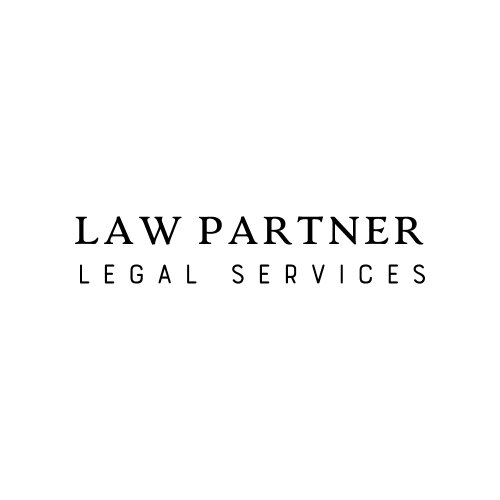Best Financial Services Regulation Lawyers in Republic of Lithuania
Share your needs with us, get contacted by law firms.
Free. Takes 2 min.
Or refine your search by selecting a city:
List of the best lawyers in Republic of Lithuania
About Financial Services Regulation Law in Republic of Lithuania
Financial Services Regulation in the Republic of Lithuania encompasses a broad range of rules and regulations that govern the operations of financial institutions, including banks, insurance companies, investment firms, and fintech organizations. The primary aim is to ensure the stability and integrity of the financial system, protect consumers, and prevent financial crimes. Lithuania is known for its progressive fintech environment, facilitated by favorable regulations that encourage innovation while maintaining robust regulatory oversight. The Bank of Lithuania is the central regulatory authority, working in collaboration with other local and European institutions.
Why You May Need a Lawyer
Individuals and businesses may require legal assistance in Financial Services Regulation for numerous reasons. Common situations include navigating the complex licensing requirements for financial institutions, compliance with anti-money laundering (AML) laws, handling disputes with financial service providers, understanding consumer protection laws, engaging in cross-border transactions, and addressing regulatory investigations or penalties. Legal experts can provide valuable guidance and representation to ensure adherence to the regulatory framework and address any issues that arise.
Local Laws Overview
Lithuania's financial services regulatory environment is influenced by both national and EU regulations. Key aspects include:
- Finance Market Supervision: The Bank of Lithuania oversees the market, ensuring the health and stability of financial institutions.
- Licensing: Entities must acquire proper licenses to operate. The process involves stringent scrutiny to ensure capability and compliance.
- Consumer Protection: Laws designed to safeguard consumers' rights, ensuring transparency and fairness in financial dealings.
- Anti-Money Laundering (AML): Lithuania upholds stringent AML regulations to prevent financial crimes, necessitating thorough compliance from financial entities.
- Data Protection: In alignment with the General Data Protection Regulation (GDPR), financial institutions must secure consumer data and privacy.
Frequently Asked Questions
What is the role of the Bank of Lithuania in Financial Services Regulation?
The Bank of Lithuania is the central regulatory authority responsible for overseeing and ensuring the stability and transparency of the financial market, as well as consumer protection and enforcement of regulations.
How do I obtain a financial services license in Lithuania?
Obtaining a license involves submitting an application to the Bank of Lithuania, including detailed information about the business, its management, and financial projections. It is recommended to seek legal guidance due to the complexity of requirements.
What are the consumer protection rights in financial services?
Consumers are entitled to clear and fair information about products, the right to withdraw from financial agreements, and protection from unfair contractual terms and practices.
What are the penalties for non-compliance with financial regulations?
Penalties can vary from fines, withdrawal of licenses, or other sanctions imposed by the Bank of Lithuania, depending on the severity and nature of the non-compliance.
Are there specific regulations for fintech companies?
Yes, fintech companies must comply with general financial regulations and specific guidelines that promote innovation while ensuring consumer protection and security.
What should I do if I suspect a financial crime?
Report any suspicions to the Financial Crime Investigation Service (FCIS) and consult with a legal expert for further advice on the situation.
Is Lithuania a member of the Eurozone and how does it impact financial regulation?
Yes, Lithuania is part of the Eurozone, which means it complies with EU financial regulations and standards, providing a stable and uniform regulatory environment.
How does Lithuania ensure data protection in financial services?
Lithuania complies with the GDPR, ensuring that financial institutions implement stringent data protection measures to protect consumer information.
Can foreign financial service providers operate in Lithuania?
Yes, but they must comply with Lithuanian and EU regulations, which may include obtaining necessary licenses and adhering to local laws.
What recourse do I have if I have a dispute with a financial service provider?
Consumers can seek resolution through the Bank of Lithuania's dispute resolution mechanisms or take legal action with the assistance of a lawyer specializing in financial regulations.
Additional Resources
Consider the following resources for further information and assistance:
- Bank of Lithuania: The principal regulatory authority responsible for overseeing financial services.
- Financial Crime Investigation Service (FCIS): For reporting financial crimes and obtaining guidance.
- Ministry of Finance of the Republic of Lithuania: Provides information on financial policy and regulations.
- European Central Bank: Offers insights into eurozone-wide regulations and policies affecting Lithuania.
Next Steps
If you require legal assistance in financial services regulation, consider the following steps:
- Assess the specific legal issue or need.
- Research and identify legal experts specializing in financial services regulation.
- Contact a lawyer for an initial consultation to discuss your situation and potential strategies.
- Gather all relevant documentation and information related to your case.
- Work collaboratively with your legal advisor to ensure compliance and resolve any issues effectively.
Lawzana helps you find the best lawyers and law firms in Republic of Lithuania through a curated and pre-screened list of qualified legal professionals. Our platform offers rankings and detailed profiles of attorneys and law firms, allowing you to compare based on practice areas, including Financial Services Regulation, experience, and client feedback.
Each profile includes a description of the firm's areas of practice, client reviews, team members and partners, year of establishment, spoken languages, office locations, contact information, social media presence, and any published articles or resources. Most firms on our platform speak English and are experienced in both local and international legal matters.
Get a quote from top-rated law firms in Republic of Lithuania — quickly, securely, and without unnecessary hassle.
Disclaimer:
The information provided on this page is for general informational purposes only and does not constitute legal advice. While we strive to ensure the accuracy and relevance of the content, legal information may change over time, and interpretations of the law can vary. You should always consult with a qualified legal professional for advice specific to your situation.
We disclaim all liability for actions taken or not taken based on the content of this page. If you believe any information is incorrect or outdated, please contact us, and we will review and update it where appropriate.
Browse financial services regulation law firms by city in Republic of Lithuania
Refine your search by selecting a city.















